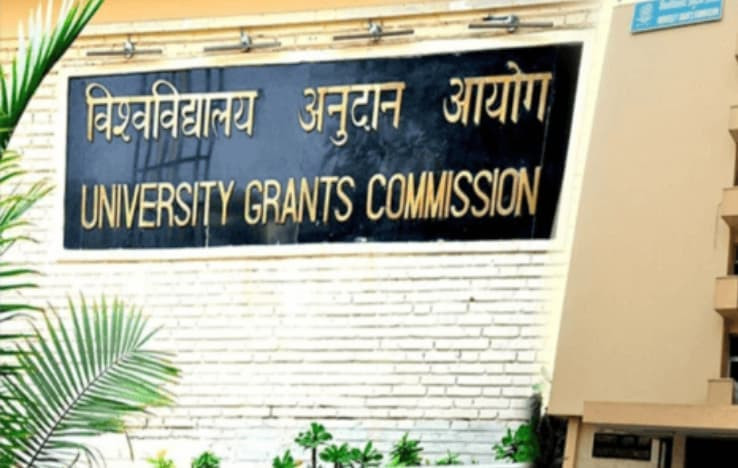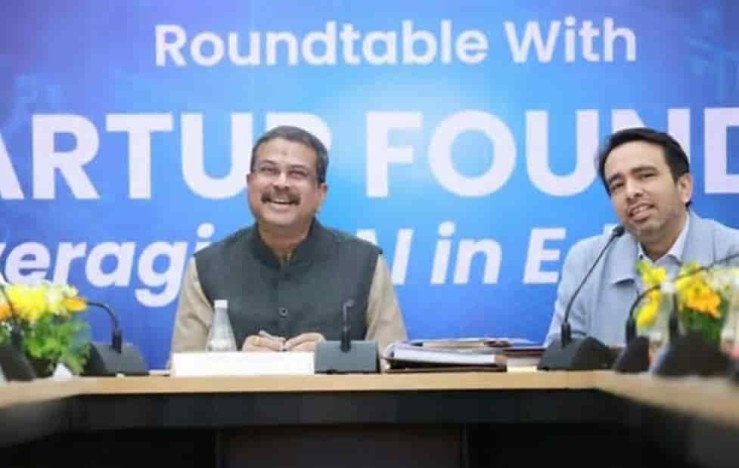Last Updated Dec - 06 - 2024, 05:21 PM | Source : NDTV | Visitors : 59
UGC introduces draft regulations for biannual admissions, flexible degree durations, multidisciplinary learning, and entry-exit options in UG and PG programs, a

The University Grants Commission (UGC) issued proposed regulations on Thursday that include twice-a-year admission, various entrance and departure choices, and increased flexibility for admission in any undergraduate or postgraduate degree.
The amendments seek to establish a new standard for the awarding of undergraduate and graduate degrees, ensuring that institutions can satisfy the different demands of today's students.
Talking about the regulations, M Jagadesh Kumar, chairman, UGC said, "The Draft UGC (Minimum Standards of Instructions in the Award of UG and PG Degrees) Regulations 2024 aims to transform higher education in India by introducing greater flexibility, removal of disciplinary rigidity, inclusivity, and multidisciplinary learning opportunities for students. With these reforms, we ensure that Indian higher education evolves to meet global standards while staying rooted in inclusivity and adaptability to diverse learner needs."
Biannual admission has been facilitated for HEIs prepared to handle biannual admissions and may admit students twice a year, in July/August and January/February.
The draft regulations include provisions for numerous entrance and departure points, ongoing formative evaluation, acknowledgment of past learning, and pursuing two UG/PG courses.
Considering the numerous learning modalities and holistic and interdisciplinary learning possibilities proposed by NEP 2020, HEIs should decide on the minimum attendance requirement of students in different programs with the permission of respective statutory authorities.
Regardless of the fields studied in class 12 or UG, a student is eligible for admission to any UG or PG program. Admission will be granted on the condition that the student passes the national or university level entrance test in the discipline of the UG/PG course.
To earn an undergraduate degree with a major in a discipline, students must earn a minimum of 50% of total credits in that discipline. The remaining 50% credits can be used for skill courses, apprenticeships, and multidisciplinary subjects. Undergraduate degrees typically last three to four years, while postgraduate degrees typically last one to two years. The Accelerated Degree Programme (ADP) and Extended Degree Programme (EDP) provide key provisions for these programs.
Students who have completed a four-year undergraduate degree (Hons./Hons. with Research) in relevant subjects (level 6, e.g. BSc. Hons. in Physics, BSc. Hons. in Biology, BSc. Hons. in Mathematics) and students who have completed a four-year undergraduate degree (level 6, e.g. BE., B.Tech., etc.) are eligible for the two-year/4-semester postgraduate programme (level 7, e.g. ME, MTech., etc.).

Feb - 20
India currently has 21 Indian Institutes of Management (IIMs) located across different states. These institutes are known for offering some of the ... Read More

Feb - 20
Union Education Minister Dharmendra Pradhan recently chaired a roundtable discussion with founders of Indian startups working in artificial intelli... Read More

Feb - 20
A controversy surrounding Galgotias University has escalated all the way to the Uttar Pradesh Assembly, as opposition lawmakers pushed for a probe ... Read More